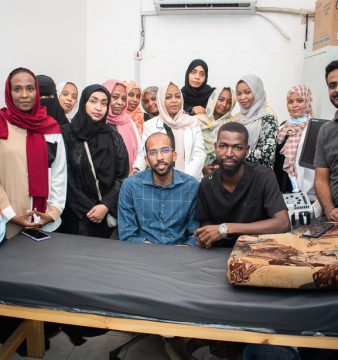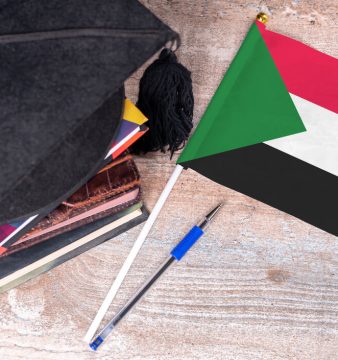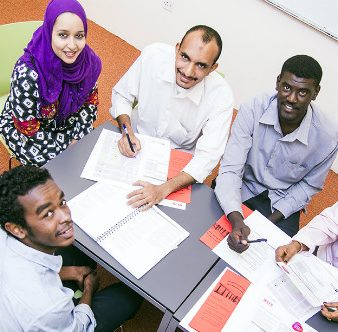Speak Sudanese: New Website for Learning Sudanese Arabic
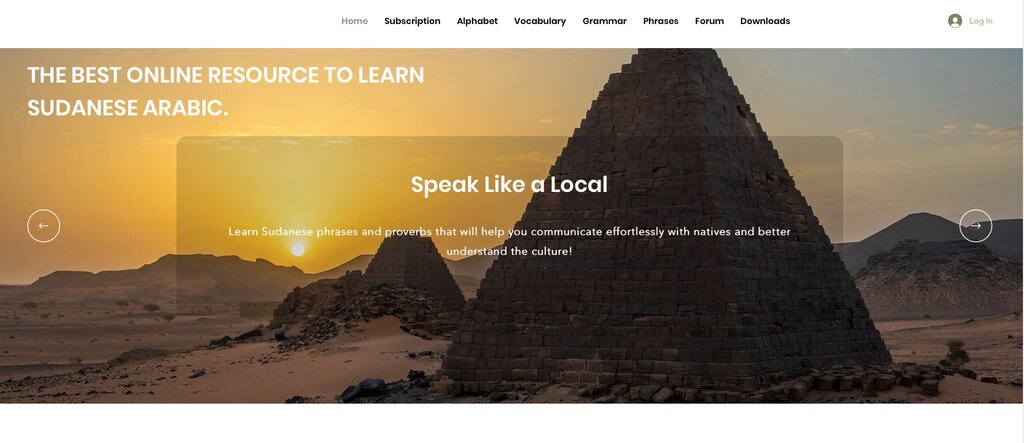
After launching the new book 100 Sudanese Verbs for Beginners in April 2023 to bridge the gap between learners of Sudanese Arabic and resources, Waleed Elharith Johnson and Fakhradin Dafallaa said it is meant to be a first step with more resources to come.
Now, they have launched a new website, Speak Sudanese, for people who want to learn Sudanese Arabic for a subscription of USD9.99 per month.
‘The goal of this website is to be the premier learning resource for those interested in learning Sudanese Arabic. My own journey of learning Sudanese Arabic inspired me to help create it. I did not grow up speaking Sudanese Arabic, but I decided I wanted to learn it to better connect with my family. Immediately, I was confronted with the fact that very few resources exist online for learning it. I was able to find a great teacher, Fakhradin, who told me that his other students shared the same struggle. After some years, we began talking about how we could combine our strengths—programming for me and teaching for him—to create a resource that could make the learning journey easier for learners of Sudanese Arabic. I’m thrilled not only to be able to make it easier for people who are in the same position that I was, but also to play a role in helping to document this beautiful dialect that has very little documentation,’ said Johnson.
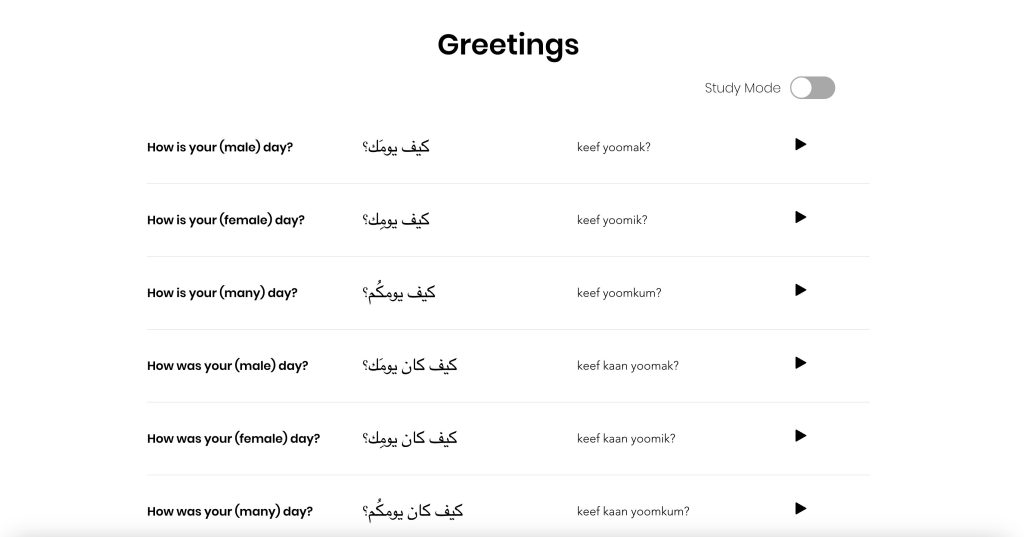
Due to the lack of documentation and available resources to learning the Sudanese Arabic dialect, Speak Sudanese was created to provide a comprehensive collection of Sudanese Arabic resources. The website contains over 1,000 different words along with recordings as well as conjugation tables for verbs. More words will be added weekly. There are also more than 300 phrases along with their recordings. There are articles on grammar as well flashcards and downloadable resources to help people study.
‘In 2018, I began teaching Sudanese Arabic, initially thinking that there might not be much interest since I assumed Sudanese Arabic wasn’t as popular as Modern Standard Arabic (MSA) or Egyptian Arabic. However, I quickly discovered that there was significant demand from people all around the world, each with their own reasons for wanting to learn. Almost all of them shared a common frustration: the difficulty in finding resources and materials to support their language learning journey. I teamed up with my dear old student and friend, Waleed with whom I wrote the book, 100 Sudanese Verbs for Beginners, to help solve this problem. Utilising his tech and programming skills and my expertise in the Sudanese language, we decided to create this website. I genuinely hope it proves to be incredibly useful for everyone!’ said Dafallaa.
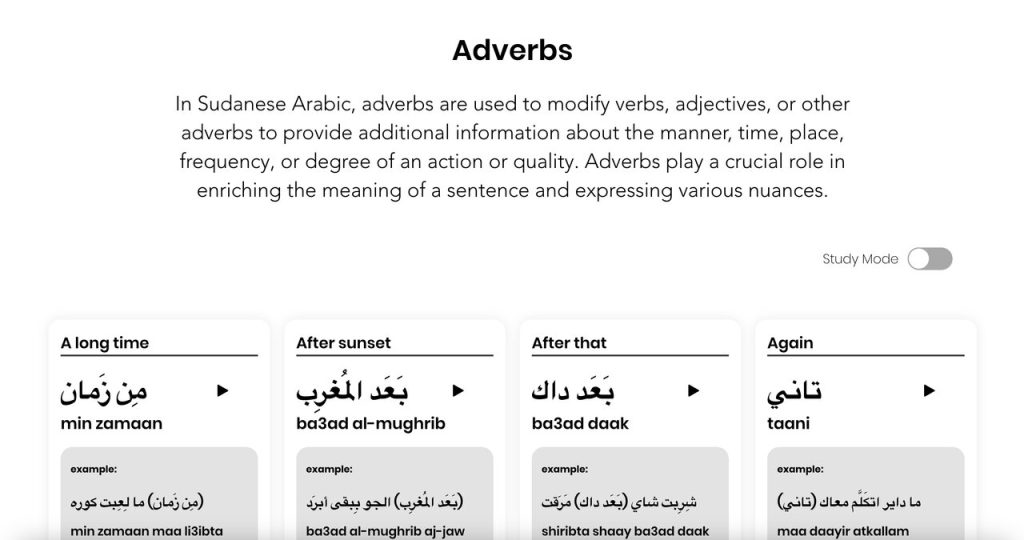
Learn vocabulary, grammar, phrases, and more with example sentences as well as audio recordings to help you master pronunciation. The website also offers the ability to schedule one on one lessons with an experienced teacher.
Before subscribing, you may browse the free content available on the website to get a glimpse of what is at offer.
The creators
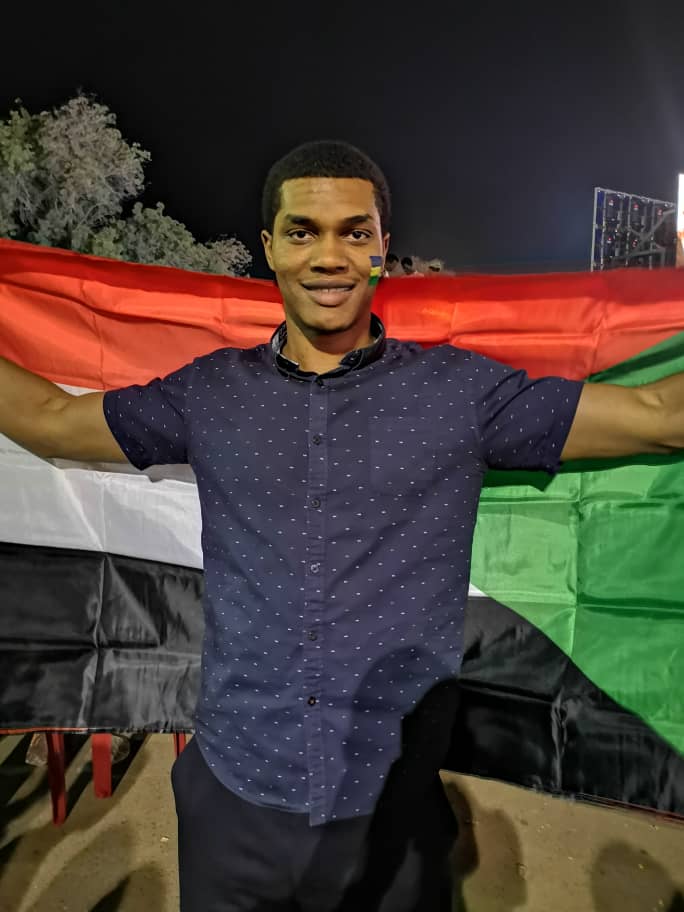
Waleed Elharith Johnson is the child of a Sudanese father and American mother. Tragically, his father died when Waleed was just a baby and therefore did not grow up speaking the language. Despite maintaining close ties with his family in Sudan, it always bothered him that he did not know the language. When Waleed decided to start learning the language, he was immediately confronted with the reality that the language learning journey would be made more difficult by the lack of resources available. Gradually his desire to learn turned into a passion to help others who wanted to learn, which led to the idea for the book, 100 Sudanese Verbs for Beginners. Waleed’s interests are varied. He is a computer engineer who works as an iOS developer, and also an artist. He has done murals and sold paintings across the US and his painting is featured on the cover of 100 Sudanese Verbs for Beginners. More of his work can be found on Instagram @waleed_the_artist.
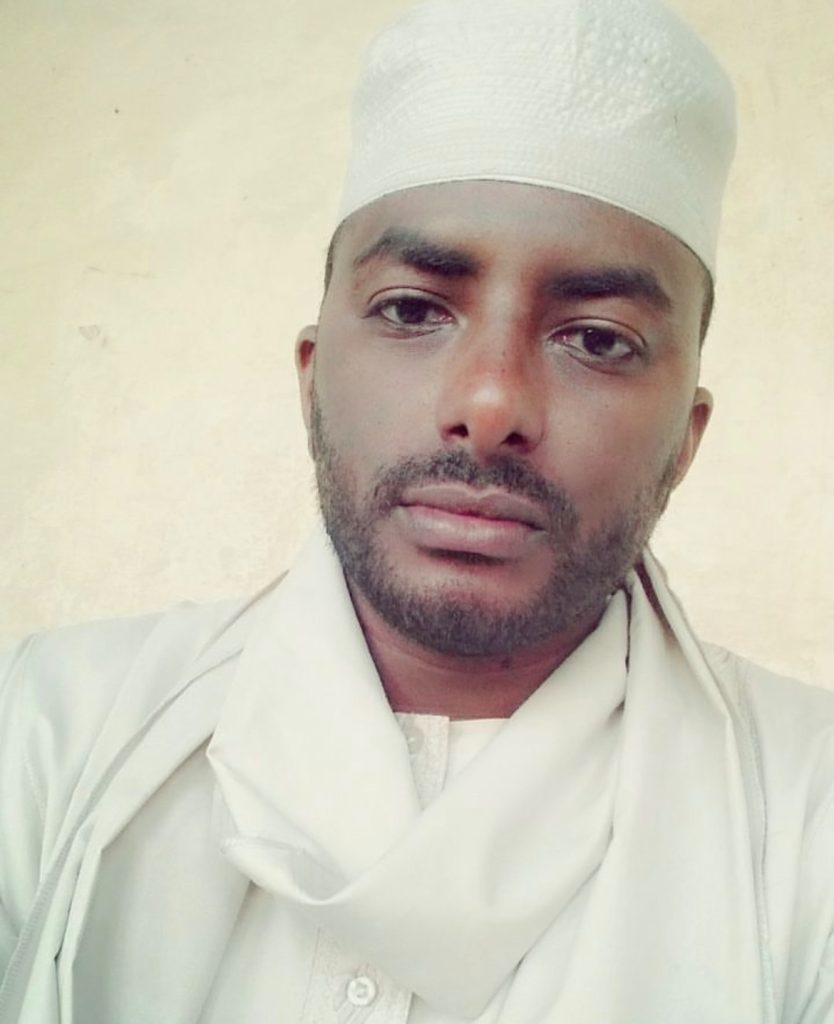
Fakhradin Dafallaa was born to Sudanese parents and raised in the UAE. He currently resides in the Philippines. He currently works as a language instructor online to students from all over the world. Fakhradin specialises in teaching Sudanese Arabic as well as Modern Standard Arabic (MSA) and has years of experience. As his teaching practice began to grow, he realised the lack of resources available for learning Sudanese Arabic and committed to using his knowledge to make learning Sudanese Arabic more accessible to all. He is the creator of the YouTube channel, Learn Sudanese Arabic With Daff www.youtube.com/@LearnSudaneseArabicwithDaff.
About Sudanese Arabic
The Sudanese dialect, which is also known as Sudanese Arabic, is derived from Classical Arabic, with a plethora of loan words from other foreign languages mixed in. It refers to the various related varieties of Arabic spoken in Sudan but can also be found in Egypt, Eritrea, Ethiopia and Chad. Sudanese Arabic has also influenced a number of Arabic-based pidgins and creoles, including Juba Arabic, widely used in South Sudan, and Ki-Nubi, spoken by the Nubi communities of Kenya and Uganda.
For more information, visit speaksudanese.com
Related posts

